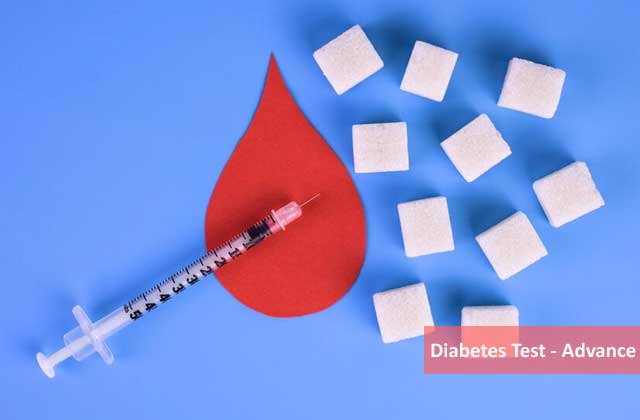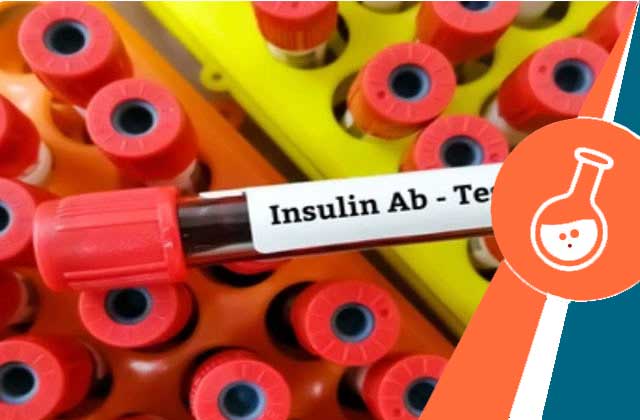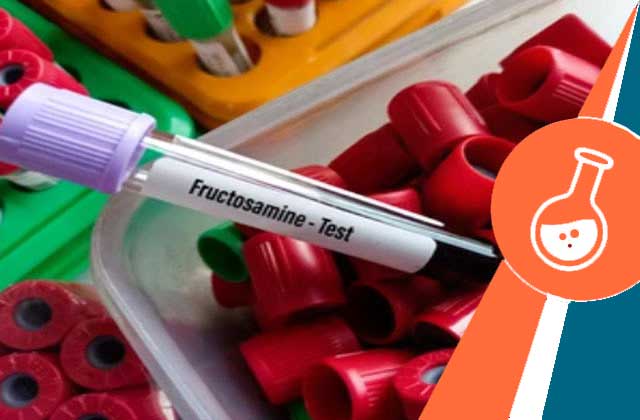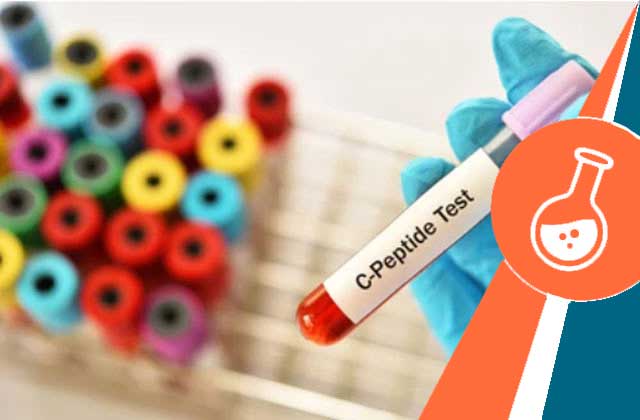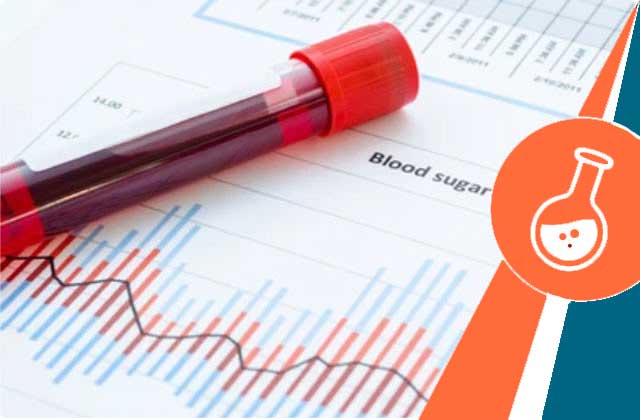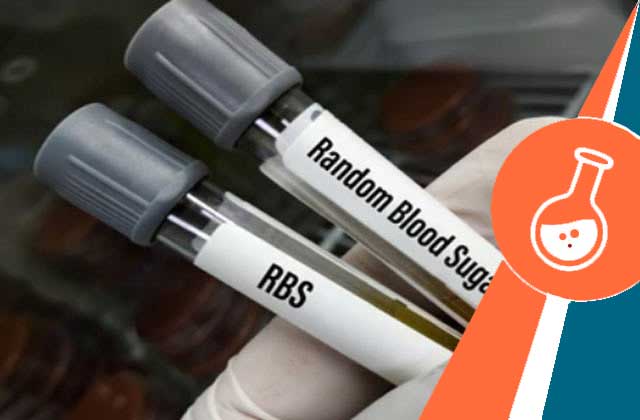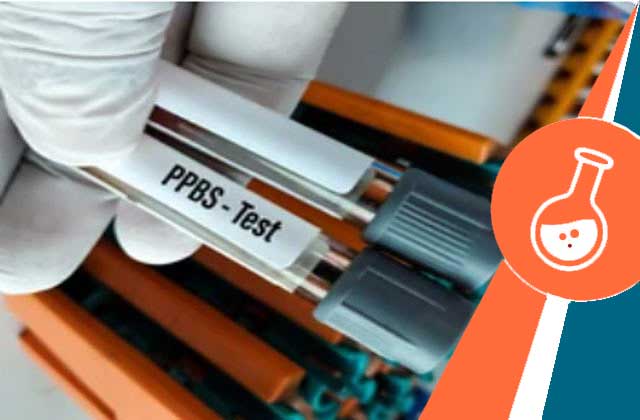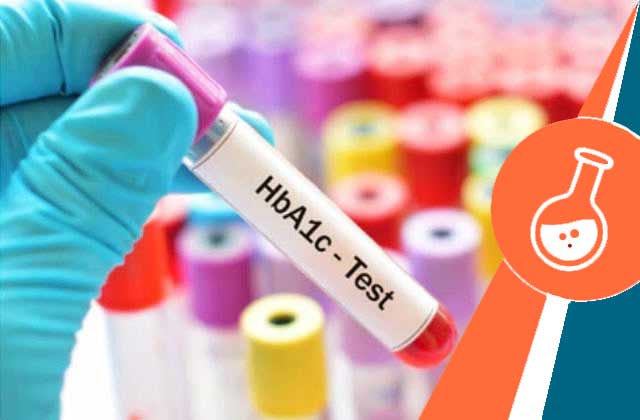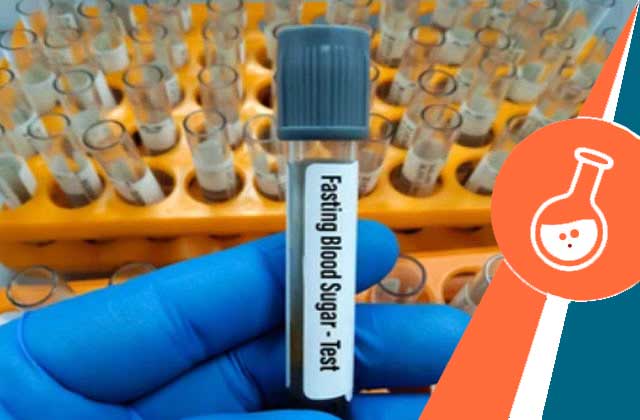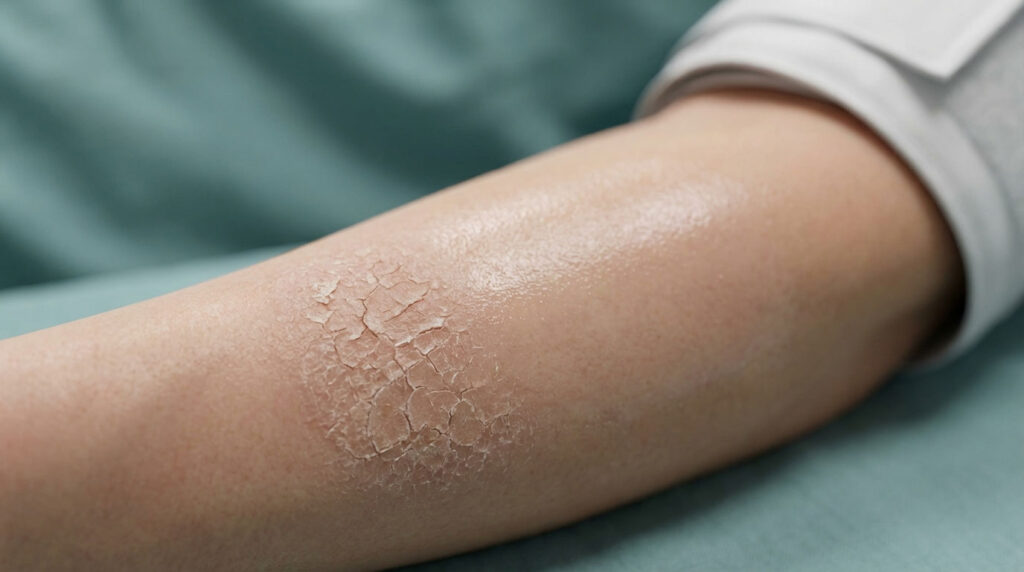Diabetic Profile Test
Could Undetected Diabetes be Putting Your Life at Risk? Prioritize Diabetes Profile Testing
Are you unknowingly living with a silent killer? Diabetes, left unchecked, can quietly sabotage your health, leading to life-threatening complications. Elevated blood sugar levels, if left unchecked, can damage vital organs, impair circulation, and even lead to heart disease, stroke, or kidney failure. Diabetes Profile Testing isn’t just an option; it’s a vital necessity. By analyzing your sugar levels comprehensively, it unveils hidden risks, empowering proactive management.
If a family history of diabetes exists or you are experiencing symptoms, prioritize Diabetic Profile Testing Today!
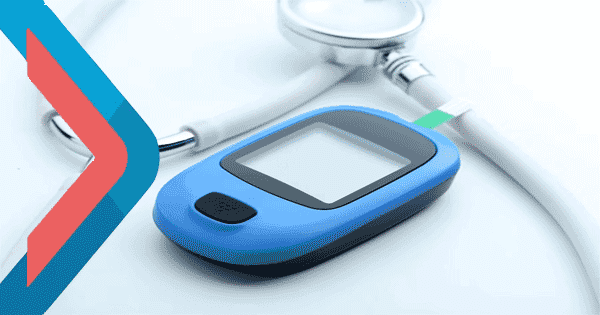
Explore Book Sugar Profile Test | 30% Off on Diabetes Profile Test Prices List & Packages
₹805
₹660
- Includes 1 Parameters
₹122
₹97
- Includes 1 Parameters
How To Get This Test

CHOOSE YOUR TESTS

PHLEBOTOMIST VISITS YOUR PLACE
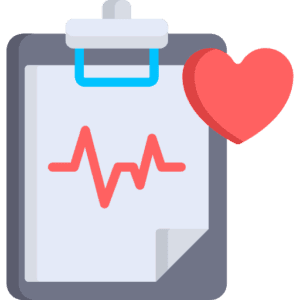
GET YOUR TEST REPORTS
What is the Purpose of Getting a Diabetic Profile Test?
- Detect Diabetes: A Diabetes Screening test helps identify if a person has diabetes or is at risk of developing it by measuring blood glucose levels.
- Monitor Blood Sugar Levels: For individuals already diagnosed with diabetes, the Diabetes screening test helps monitor blood sugar levels over time to ensure they are within a healthy range.
- Evaluate Overall Diabetic Health: The sugar profile test provides insights into how well diabetes is being managed and if any adjustments to treatment plans are necessary.
- Assess Risk Factors: The Sugar test can also identify risk factors associated with diabetes, such as obesity, family history, and lifestyle choices.
- Prevent Complications: Early detection and management of diabetes can help prevent or delay complications such as heart disease, kidney damage, nerve damage, and vision problems.
What are the Causes Of Diabetes?
- Sedentary lifestyle: If you spend the majority of your day sitting still without any exercise, you may be at risk of type 2 diabetes. Lack of exercise can cause insulin resistance, which makes it challenging to control blood glucose levels 1
- Unhealthy diet: Eating a diet rich in refined carbs, processed foods, and sugar, in general, can raise your chance of acquiring type 2 diabetes. These meals have the potential to instantly raise normal blood sugar levels, which can eventually result in insulin resistance and diabetes
- Diabetes genetics: If you have a long family history of the disease, you are more likely to develop it yourself. This is because certain genes can predispose you to insulin resistance and impaired glucose tolerance resulting mainly in type 1 diabetes 2
- Obesity: Being overweight or having obesity is a major risk factor for type 2 diabetes. Excess body fat can cause insulin resistance, making your body’s ability to regulate your normal sugar levels difficult.
- Age: As you get older, your chances of developing diabetes rise. This is due in part to your body becoming less efficient at producing and using insulin, as well as the cumulative effects of other risk factors such as a sedentary lifestyle and poor diet
- Diabetes during pregnancy: If you develop diabetes during pregnancy (gestational diabetes), you are more likely to develop type 2 diabetes later in life. This is because gestational diabetes indicates that your body is having difficulty regulating normal sugar levels1 Pregnant women should undergo gestational sugar profile test around week 24–28 of pregnancy.
- Polycystic ovary syndrome (PCOS): Women who have PCOS are more likely to develop type 2 diabetes. PCOS/PCOD In problem Women can cause insulin resistance, resulting in higher-than-normal blood sugar levels. Regular monitoring through a sugar profile test is essential for women with PCOS to manage their risk factors effectively.
What Symptoms Indicate the Need for a Diabetes Profile Test?
Diabetes can be detected and treated early, which can help prevent complications and improve your overall health. Here are five common symptoms that should prompt you to schedule a diabetes profile test right away:
- Frequent urination: If you find yourself urinating more frequently than usual, particularly at night, this could be a sign of diabetes. High blood sugar levels can make your kidneys work harder to filter out excess glucose, causing you to urinate more frequently
- Increased thirst: Constant thirst, even after drinking plenty of fluids, may indicate diabetes. Dehydration can result from high blood sugar levels, making you thirsty and tired
- Fatigue: Do you feel tired all of the time, even after getting enough sleep? This could be a sign of diabetes. This is because higher-than-normal blood sugar levels can make it difficult for your body to convert glucose into energy, resulting in fatigue and weakness.
- Blurred vision: Blurred vision or facing trouble focusing is also a symptom of diabetes. Higher than normal sugar levels can cause the lenses in your eyes to swell, causing vision problems
- Slow-healing wounds: If you have cuts or wounds that are slow to heal, it could be a sign of diabetes. High blood sugar levels can damage blood vessels and nerves, leading to poor circulation and delayed healing.
According to the American Diabetes Association, anyone experiencing diabetes symptoms or who may develop the disease in the future should speak with their doctor to arrange for the necessary diabetes screening test.3, 4
Types of Diabetes Diagnosed by Diabetic Profile Test
The diabetic profile test can identify the following common types of diabetes:
- Diabetes Type 1: When the body produces little or no insulin, this condition is diagnosed. Though it can develop at any age, it usually begins in childhood. The identification of type 1 diabetes can be aided by genetic testing and autoantibody detection. 5
- Diabetes Type 2: The most prevalent kind of diabetes, type 2 is characterized by poor insulin sensitivity in the body’s cells. Obesity and being overweight are two lifestyle variables that often combine with genetics to develop it. Type 2 diabetes is diagnosed by the A1C test, glucose tolerance test, and fasting blood sugar test. 6
- Gestational Diabetes: This type of diabetes is exclusive to pregnant women. Blood tests are typically used to diagnose it between weeks 24 and 28 of pregnancy.6
- Prediabetes: It is defined as having blood glucose levels that are higher than normal but not high enough to be classified as diabetes. Prediabetes may increase the risk of developing diabetes. The glucose tolerance test, fasting blood sugar test, and A1C test are used to detect prediabetes.6
To distinguish between the various forms of diabetes, additional testing may be carried out, including genetic testing, autoantibody detection, and C-peptide testing.7
Different Ways To Test Your Diabetes To Identify Potential Issues
Your healthcare professional will ask you to get one of the below-mentioned type of diabetes test done if you have symptoms of this disease. You can also get sugar test at home through certified labs by booking online.
- Fasting blood sugar test: A fasting blood sugar test measures the amount of glucose in your bloodstream at a single point in time.
- Random blood sugar test: Random blood sugar test is often used to diagnose diabetes or monitor glucose levels in people with diabetes.
- Glycosylated haemoglobin (A1C) test: HbA1c Test measures your average blood sugar levels over the past two to three months. It can provide an overall picture of your blood glucose control and is often used to monitor the effectiveness of diabetes treatment over time.
- Glucose Tolerance Test: This test measures your blood sugar before and after you consume a glucose drink. The healthcare professional will then measure the changes in your blood sugar level every hour over the next three hours.
Diabetes Test Diagnosis
Based on your test results, you might encounter the following scenarios
- No diabetes: If your diabetic profile test results fall within the normal range, then you might not have diabetes. It is, however, recommended to get a second test done to rule out any instances of false positives.
- Higher than normal results: In case of a high diabetes blood test result, your doctor can diagnose diseases including diabetes, prediabetes, Cushing’s syndrome, pancreatic cancer or pancreatitis.
- Lower than normal results: While high blood sugar is more commonly associated with diabetes, low blood sugar (hypoglycemia) can also occur if you take too much insulin or other diabetes medications. Besides this, your doctor can also diagnose other diseases, including hypothyroidism, adrenal insufficiency, and liver or kidney disease.
Interpreting The Diabetes Profile Test Results
Diabetes Test Reference Ranges
When you receive your diabetes blood test results, they will indicate your blood glucose levels and help determine whether you have diabetes or not. For this, you need to know the ideal diabetes normal levels.
If your diabetic profile test results show that your blood glucose level is normal (less than 100 mg/dL), then it is likely that you do not have diabetes. However, if your blood glucose level is high (over 126 mg/dL) on two separate occasions, you will likely have diabetes.
If your test results show a blood glucose level between 100 and 125 mg/dL, then you may have pre-diabetes. This means that your blood glucose levels are higher than normal but not high enough to be considered diabetes. Pre-diabetes is a warning sign that you are at risk for developing diabetes in the future, and it’s important to make lifestyle changes and regular diabetes check-ups to prevent the progression of diabetes.
| Normal Range | Pre Diabetic Range | Diabetes |
| Less than 100 mg/dL | Between 100 and 125 mg/dL | More than 126 mg/dL |
Diabetic Profile Test Price
When it comes to assessing Diabetes-related health concerns, individuals often contemplate the Diabetes profile test prices in India.
- Understanding Diabetes Profile Test Prices: The cost of a Diabetes profile test in India can vary, ranging from Rs. 3000 to Rs. 4000, depending on the specific tests included in the Diabetes test package. For a detailed breakdown of the individual charges associated with each test featured in a Diabetes Panel, please refer to the table provided below.
- Considerations and Factors: It’s imperative to recognize that the averages of Diabetes test costs mentioned serve as general benchmarks observed across various diagnostic centres. Keep in mind that Sugar test prices may undergo fluctuations based on your geographical location.
- Accessible Testing with HealthcareOnTime: Here’s where it gets exciting! At HealthcareOnTime, we are deeply committed to ensuring healthcare accessibility for all individuals. That’s why we offer valuable services, including budget-friendly options for diabetes blood test packages in over 4500+ pin codes nationwide. We prioritize your health and well-being, striving to make essential health assessments easily accessible for everyone.
| Test Types | Price (INR) |
| Fasting Blood Sugar Test | Rs. 100-199 |
| Random Blood Sugar Test | Rs. 149-249 |
| Glycosylated hemoglobin (A1C) Test | Rs. 299-599 |
| Glucose Tolerance Test | Rs. 200-600 |
| Insuline Test | Rs. 500-800 |
By opting for HealthcareOnTime lab test at-home facilities, you can access comprehensive Thyrocare Diabetes Packages. We provide two options: a basic package encompassing 69 parameters and an advanced package covering 105 parameters. Ensure your well-being by incorporating Diabetes screening tests into your routine health checkups with our convenient at-home testing services.
| Package Type | Parameters Covered | Price (INR) |
| Diabetes Test – Basic | 69 parameters | Rs. 1000 |
| Diabetes Test – Advanced | 105 parameters | Rs. 2000 |
How To Prevent Diabetes Effectively?
Aside from receiving routine diabetes blood tests, we recommend avoiding diabetic symptoms in the first place. To live a diabetes-free lifestyle, follow the measures outlined below.
- Maintain a healthy weight: Keep a healthy weight: Excess weight, particularly around the waist, increases your chances of getting type 2 diabetes. Maintaining a healthy weight requires a well-balanced diet and regular exercise
- Stay physically active: Keep your weight in check, lower your blood sugar levels, and lessen your risk of developing type 2 diabetes by staying physically active. Most days of the week, aim for at least 30 minutes of moderate-intensity activity, such as brisk walking
- Eat a healthy diet: A nutrient rich superfood can help you maintain a healthy weight and minimize your chances of acquiring type 2 diabetes. Consume whole, unprocessed foods abundant in fibre, lean protein, and healthy fats
- Don’t smoke: Smoking increases your chances of having type 2 diabetes and various other health issues. If you smoke, consult with your doctor about stopping
- Get regular check-ups: Frequent health check-ups or master health checkups with your healthcare provider can aid in the early detection and treatment of diabetes, as well as the identification and management of other health issues that may raise your risk of getting this disease. Check your blood pressure and cholesterol levels, as well as diabetes screenings, if you are at risk.
Are You Unknowingly Living with Diabetes? Don't Wait, Explore Your Testing Options with Us!
Are you unknowingly living with diabetes? Don’t wait for symptoms to escalate. Untreated diabetes can jeopardize your health and lead to serious complications over time. From uncontrolled blood sugar levels to potential organ damage, the risks are real.
At HealthcareOnTime, we recognize the urgency of early detection and management. Our comprehensive thyrocare diabetes package offers insights into your diabetes status, empowering you to take proactive steps towards better health. With our convenient options to test blood sugar at home, you can gain clarity and peace of mind from the comfort of your own home.
Don’t let uncertainty about your diabetic status hold you back. With our convenient diabetes test at home, you can gain clarity and peace of mind from the comfort of your own home. Take charge of your health today by scheduling your Diabetic Profile Test with us. Don’t delay—your well-being is worth it.
Liver Affecting Your Health? Get Answers to Your FAQs!
Can diabetes be cured?
Unfortunately, there is no known cure for diabetes. However, with proper management, including a healthy diet, regular exercise, and medication as prescribed by your doctor, you can effectively control your blood sugar levels and prevent or delay complications associated with diabetes.
How to permanently cure diabetes?
Diabetes does not have a permanent cure. It can only be regulated, not completely treated.
What is the difference between a fasting blood sugar test and a random blood sugar test?
A fasting blood sugar test measures your blood sugar level after you’ve fasted for at least eight hours. This test is used to diagnose diabetes and pre-diabetes. In contrast, a random blood sugar test measures your blood sugar level at any time, regardless of when you last ate. This test is often used to diagnose diabetes during routine check-ups or if you’re experiencing symptoms of high blood sugar.
Can I eat or drink anything before a diabetes test?
It is recommended not to eat anything before a diabetes test to avoid skewing your test results. You can, however, drink water.
Do I need to stop taking any medications before a diabetes test?
It depends on the type of diabetes test you’ll be taking. For a fasting blood sugar test, you may need to stop taking certain medications that can affect your blood sugar levels, as directed by your doctor. However, for a random blood sugar test, you don’t typically need to stop taking any medications. Always follow your doctor’s instructions before any medical tests or procedures.
How often should I get a diabetes test if I have risk factors for diabetes?
It is recommended to follow up with your healthcare professional every 6-8 months to check your blood sugar levels.
Building a Legacy of Healthy Smiles
Hear from Our Valued Clients
Service was prompt, sample collected on time. And also got the report quickly.
HealthcareOnTime Blogs
Stay Informed: Latest Insights on Health, Conditions, Tests, and Treatments VIEW ALL

